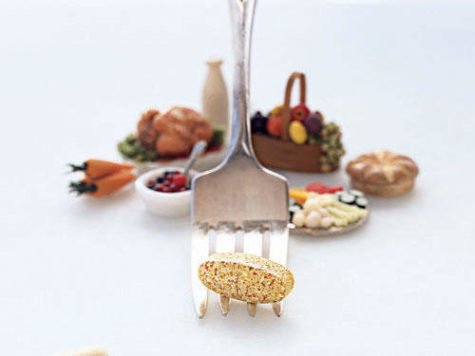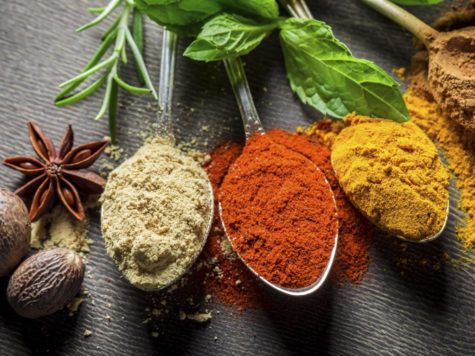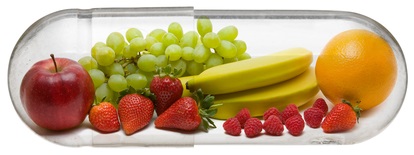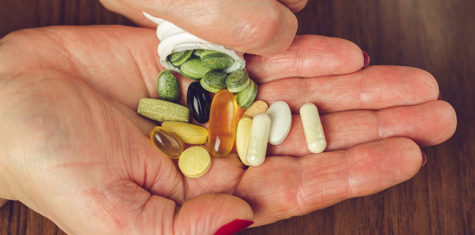Nutritional Tables
The Vitamins and Minerals in Your Spice Rack
Did you know that the spices you add to your food not only give a nice flavor boost, they also add nutrition? It was a surprise to me too. Here’s a cool list! The spices listed first, and shown in red, indicate there are large amounts of that nutrient in that particular spice. Interestingly, Black pepper, Cayenne, Ginger, and Turmeric are high on almost every list!
Vitamin A
- Black pepper, Cayenne, Chili, Cloves, Ginger, Mustard seed, Turmeric
- Allspice, Anise, Basil, Caraway Seed, Chervil, Chives, Cumin, Curry, Dill, Fennel, Fenugreek, Marjoram, Nutmeg, Oregano, Paprika, Parsley, Peppermint, Rosemary, Sage, Savory, Saffron, Tarragon, Thyme
B1 – Thiamine
- Mustard seed
B2 – Riboflavin
- Chili
- Paprika
B3 – Niacin
- Black pepper, Cayenne, Cinnamon, Chili, Ginger, Mustard seed, Turmeric
- Allspice, Anise, Caraway Seed, Chervil, Coriander, Cumin, Curry, Dill, Fennel, Fenugreek, Garlic, Marjoram, Nutmeg, Oregano, Paprika, Parsley, Peppermint, Sage, Savory
B5 – Pantothenic Acid
- Anise, Paprika
B6 – Pyridoxine
- Cayenne, Chili, Turmeric
- Curry, Dill, Fenugreek, Garlic, Paprika, Rosemary, Sage, Savory
B9 – Folic acid
- Black pepper, Cayenne, Cinnamon, Chili, Ginger, Mustard seed, Turmeric
- Allspice, Anise, Basil, Caraway Seed, Chervil, Chives, Cumin, Curry, Fenugreek, Garlic, Marjoram, Nutmeg, Oregano, Paprika, Parsley, Peppermint, Rosemary, Saffron, Sage, Tarragon, Thyme
Betaine
- Black pepper, Cinnamon, Chili, Ginger, Mustard seed, Turmeric
- Basil, Curry, Garlic, Oregano, Paprika
Vitamin C
- Black pepper, Cayenne, Cinnamon, Chili, Cloves, Ginger, Mustard seed, Turmeric
- Allspice, Anise, Basil, Caraway Seed, Chervil, Chives, Coriander, Curry, Cumin, Dill, Fennel, Fenugreek, Garlic, Marjoram, Nutmeg, Oregano, Paprika, Parsley, Peppermint, Rosemary, Saffron, Sage, Savory, Tarragon, Thyme
Calcium
- Black pepper, Cayenne, Cinnamon, Chili, Cloves, Ginger, Mustard seed, Turmeric
- Allspice, Anise, Basil, Cardamom, Chervil, Chives, Coriander, Cumin, Curry, Dill, Fennel, Garlic, Marjoram, Nutmeg, Oregano, Paprika, Parsley, Peppermint, Rosemary, Saffron, Sage, Salt, Savory, Tarragon, Thyme
Choline
- Black pepper, Cayenne, Cinnamon, Chili, Ginger, Mustard seed, Turmeric
- Basil, Caraway Seed, Chives, Cumin, Curry, Garlic, Marjoram, Nutmeg, Oregano, Paprika, Parsley, Sage, Thyme,
Copper
- Black pepper, Ginger
- Anise, Cardamom, Cumin, Curry, Fennel, Fenugreek, Nutmeg, Salt
Vitamin E
- Cayenne, Cinnamon, Chili, Ginger, Mustard seed, Turmeric
- Caraway Seed, Cumin, Curry, Garlic, Oregano, Paprika, Parsley, Sage, Thyme
Dietary Fiber
- Black pepper, Cayenne, Chili, Turmeric
- Allspice, Anise, Basil, Caraway Seed, Chervil, Chives, Coriander, Cumin, Curry, Dill, Fennel, Fenugreek, Garlic, Marjoram, Nutmeg, Oregano, Paprika, Parsley, Peppermint, Rosemary, Saffron, Sage, Savory, Tarragon, Thyme
Fluoride
- Black pepper
- Salt
Iron
- Black pepper, Cayenne, Cinnamon, Chili, Ginger, Mustard seed, Turmeric
- Allspice, Anise, Basil, Cardamom, Chervil, Coriander, Cumin, Curry, Dill, Fennel, Fenugreek, Garlic, Marjoram, Nutmeg, Oregano, Peppermint, Paprika, Parsley, Rosemary, Saffron, Sage, Salt, Savory, Tarragon, Thyme
Vitamin K
- Black pepper, Cayenne, Cinnamon, Chili, Mustard seed, Turmeric
- Basil, Chives, Cumin, Curry, Marjoram, Oregano, Paprika, Parsley, Sage, Thyme
Magnesium
- Black pepper, Cayenne, Cinnamon, Chili, Cloves, Ginger, Mustard seed, Turmeric
- Allspice, Anise, Basil, Caraway Seeds, Chervil, Chives, Coriander, Cumin, Curry, Dill, Fennel, Fenugreek, Garlic, Marjoram, Nutmeg, Oregano, Paprika, Parsley, Peppermint, Rosemary, Saffron, Sage, Salt, Savory, Tarragon, Thyme
Manganese
- Black pepper, Cayenne, Cinnamon, Chili, Ginger, Mustard seed, Turmeric
- Allspice, Anise, Caraway Seed, Coriander, Cumin, Curry, Dill, Fennel, Fenugreek, Marjoram, Nutmeg, Paprika, Parsley, Rosemary, Saffron, Sage, Salt, Savory, Thyme
Omega 3 – Fatty Acids
- Black pepper, Cayenne, Chili, Cinnamon, Ginger, Mustard seed, Turmeric
- Allspice, Basil, Caraway Seed, Chives, Cumin, Curry, Garlic, Marjoram, Oregano, Paprika, Peppermint, Rosemary, Saffron, Sage, Tarragon, Thyme
Omega 6 – Fatty Acids
- Black pepper, Cayenne, Chili, Cinnamon, Ginger, Turmeric
- Allspice, Anise, Basil, Caraway Seed, Chervil, Chives, Coriander, Cumin, Curry, Fennel, Garlic, Marjoram, Nutmeg, Oregano, Paprika, Parsley, Peppermint, Rosemary, Saffron, Sage, Tarragon, Thyme
Phosphorus
- Black pepper, Cayenne, Chili, Cinnamon, Ginger, Mustard seed, Turmeric
- Allspice, Anise, Basil, Caraway Seed, Chervil, Chives, Coriander, Cumin, Curry, Dill, Fennel, Fenugreek, Garlic, Marjoram, Nutmeg, Oregano, Paprika, Parsley, Peppermint, Rosemary, Saffron, Sage, Savory, Tarragon, Thyme
Phytosterols
- Black pepper, Cayenne, Chili, Cinnamon, Ginger, Mustard seed, Turmeric
- Allspice, Basil, Caraway Seed, Chives, Coriander, Cumin, Curry, Fennel, Fenugreek, Garlic, Marjoram, Nutmeg, Oregano, Paprika, Peppermint, Rosemary, Sage, Savory, Tarragon, Thyme
Potassium
- Black pepper, Cayenne, Cinnamon, Chili, Cloves, Ginger, Turmeric
- Allspice, Anise, Basil, Caraway Seed, Chervil, Chives, Coriander, Cumin, Curry, Dill, Fennel, Fenugreek, Garlic, Marjoram, Nutmeg, Oregano, Paprika, Parsley, Peppermint, Rosemary, Saffron, Sage, Savory, Tarragon, Thyme
Protein
- Black pepper, Cayenne, Chili, Ginger, Mustard seed, Turmeric
- Allspice, Anise, Basil, Caraway Seed, Chervil, Chives, Coriander, Cumin, Curry, Dill, Fennel, Fenugreek, Garlic, Marjoram, Nutmeg, Oregano, Paprika, Parsley, Peppermint, Rosemary, Saffron, Sage, Savory, Tarragon, Thyme
Selenium
- Black pepper, Cayenne, Chili, Cinnamon, Ginger, Mustard seed, Turmeric
- Allspice, Anise, Caraway Seed, Chervil, Coriander, Cumin, Curry, Fenugreek, Garlic, Marjoram, Nutmeg, Oregano, Paprika, Parsley, Rosemary, Saffron, Salt, Sage, Savory, Thyme
Sodium
- Black pepper, Cayenne, Chili, Cinnamon, Ginger, Turmeric
- Allspice, Anise, Basil, Caraway Seed, Chervil, Chives, Coriander, Cumin, Curry, Dill, Fennel, Fenugreek, Garlic, Marjoram, Nutmeg, Oregano, Paprika, Parsley, Peppermint, Rosemary, Saffron, Sage, Salt, Savory, Tarragon, Thyme
Zinc
- Black pepper, Cayenne, Chili, Cinnamon, Ginger, Turmeric
- Allspice, Anise, Caraway Seed, Chervil, Coriander, Cumin, Curry, Dill, Fennel, Fenugreek, Garlic, Marjoram, Nutmeg, Paprika, Parsley, Rosemary, Sage, Salt, Savory, Thyme
Source: Nutrition Data
About Minerals
 Minerals play an important role in every bodily function and are present in every human cell. Although the amount needed may be small, without even the trace of the mineral, dysfunction is bound to occur at some level in the body. A zinc deficiency may show up in ridged fingernails with white spots. Lack of sulfur can cause lack-luster hair and dull-looking skin. Less obvious deficiencies may surface as fatigue, irritability, loss of memory, nervousness, depression and weakness.
Minerals play an important role in every bodily function and are present in every human cell. Although the amount needed may be small, without even the trace of the mineral, dysfunction is bound to occur at some level in the body. A zinc deficiency may show up in ridged fingernails with white spots. Lack of sulfur can cause lack-luster hair and dull-looking skin. Less obvious deficiencies may surface as fatigue, irritability, loss of memory, nervousness, depression and weakness.
Minerals also interact with vitamins. Magnesium, for instance, must be present in the body for utilization of B-complex, C and E vitamins. Sulfur also works with the B-complex vitamins. The body needs all the trace minerals in proper balance.
Coffee, tea, alcohol, excess salt and many drugs can rob the body of minerals or make them ineffective. Industrial pollutants cause toxic minerals to enter the body. Minerals at toxic levels also have the effect of destroying the usefulness of other vitamins and minerals.
Exercise improves the activity of certain vitamins and minerals while stress and fatigue work against them. A well-balanced diet provides as abundance of minerals and vitamins. In refining cereals, grains and sugar, we have robbed them of their natural vitamins and minerals.
The dietary sources of these nutrients are whole grains, cereals, bran and germ. It is the bran and germ which are removed in processing. To obtain a balance of nutrients, it is, therefore, necessary to avoid refined and processed foods but an intake of adequate green leafy vegetables which are an excellent source of many nutrients should be ensured.
The mineral elements which are needed by the body in substantial amounts are calcium, phosphorous, iron, sulfur, magnesium, sodium, potassium and chlorine. In addition the body needs minute (trace) amounts of iodine, copper, cobalt, manganese, zinc, selenium, silicon, fluorine and some others.
The various functions of common minerals, their deficiency symptoms, and natural sources are discussed in brief as follows:
-
Calcium
The human body needs calcium more than any other mineral. A man weighing 70 kg. contains one kg. of calcium. About 99 per cent of the quantity in the body is used for building strong bones and teeth and the remaining one per cent is used by the blood, muscles and nerves.
Calcium performs many important functions. Without this mineral , the contractions of the heart would be faulty, the muscles would not contract properly to make the limbs move and blood would not clot. Calcium stimulates enzymes in the digestive process and coordinates the functions of all other minerals in the body.
Calcium is found in milk and milk products, whole wheat, leafy vegetables such as lettuce, spinach, and cabbage , carrots, watercress, oranges, lemons, almonds, figs and walnuts. Deficiency may cause porous and fragile bones, tooth decay, heart palpitations, muscle cramps, insomnia and irritability.
-
Phosphorus
It combines with calcium to create the calcium-phorphorus balance necessary for the growth of bones and teeth and in the formation of nerve cells. This mineral is also essential for the assimilation of carbohydrates and fats. It is a stimulant to the nerves and brain.
Phosphorous is found in abundance in cereals, pulses, nuts, egg yolk, fruit juices, milk and legumes. A phosphorous deficiency may bring about loss of weight, retarded growth, reduced sexual powers and general weakness. It may result in poor mineralization of bones, deficient nerve and brain function.
-
Iron
Iron is an important mineral which enters into the vital activity of the blood and glands. Iron exists chiefly as hemoglobin in the blood. It distributes the oxygen inhaled into the lungs to all the cells. It is the master mineral which creates warms, vitality and stamina. It is required for the healthy complexion and for building up resistance in the body.
The chief sources of iron are grapes, raisins, spinach, all green vegetables, whole grain, cereals, dried beans, dark colored fruits, beets, dates, liver and egg yolk.
Deficiency of dietary iron may cause nutritional-anemia, lowered resistance to disease, a general run down condition, pale complexion, shortness of breath on manual exertion and loss of interest in sex.
-
Sulphur
All living matter contains some sulphur; this element is therefore essential for life. The greater part of the sulphur in the human body is present in the two sulphur-containing amino acids, methionine and cysteine, or in the double form of the latter cystine.
The main purpose of sulphur is to dissolve waste materials. It helps to eject some of the waste and poisons from the system. It helps keep the skin clear of blemishes and makes hair glossy. It is also valuable in rheumatic conditions.
The main sulphur-containing foods are radishes, carrots, cabbage, cheese, dried beans, fish and eggs. A diet sufficient in protein will generally be adequate in sulphur. Deficiency of sulphur may cause eczema and imperfect development of hair and nails.
-
Magnesium
All human tissues contain small amounts of magnesium. Next to potassium, magnesium is the predominant metallic action in living cells. The bones seem to provide a reserve supply of this mineral in case of shortage elsewhere in the body. Biochemists call magnesium the “cool, alkaline, refreshing, sleep-promoting mineral”. Magnesium helps one keep calm and cool during the sweltering summer months. It aids in keeping nerves relaxed and normally balanced. It is necessary for all muscular activity.
This mineral is in activator for most of the enzyme system involving carbohydrate, fat and protein in energy-producing reactions. Magnesium promotes a healthier cardiovascular system and aids in fighting depression. It helps prevent calcium deposits in kidneys and gallstones and also brings relief from indigestion.
Magnesium is widely distributed in foods. It is a part of the chlorophyll in green vegetables. Other good sources of this mineral are nuts, soy beans, alfalfa, apples, figs, lemons, peaches, almonds, whole grains, brown rice, sunflower seeds and sesame seeds.
Deficiency can lead to kidney damage and kidney stones, muscle cramps, arteriosclerosis, heart attack, epileptic seizures, nervous irritability, marked depression and confusion, impaired protein metabolism and premature wrinkles.
-
Sodium
Sodium Chloride , the chemical name for common salt, contains 39 per cent of sodium, an element which never occurs in free form in nature. It is found in an associated form with many minerals especially in plentiful amounts with chlorine. Sodium is the most abundant chemical in the extra-cellular fluid of the body. It acts with other electrolytes, especially potassium, in the intracellular fluid, to regulate the osmotic pressure and maintain a proper water balance within the body. It is a major factor in maintaining acid-base equilibrium, in transmitting nerve impulses, and in relaxing muscles. It is also required for glucose absorption and for the transport of other nutrients across cell membranes.
There is some natural salt in every food we eat. Vegetable foods rich in sodium are celery, cucumbers, watermelon, lemons, oranges, grapefruit, beet-tops, cabbage, lettuce, corn, lady’s fingers, apple, berries, pears, squash, pumpkin, peaches, lentils, almonds and walnuts. Animal food sources include shell fish, lean beef, kidney, bacon and cheese.
Both deficiency and excess of salt may produce adverse effects on the human body. Deficiencies of sodium are, however, rare and may be caused by excessive sweating, prolonged use of diuretics, or chronic diarrhea. Deficiency may lead to nausea, muscular weakness, heat exhaustion, mental apathy and respiratory failure.
Over-supply of sodium is a more common problem because of overuse of dietary sodium chloride or common salt. Too much sodium may lead to water retention, high blood pressure, stomach ulcers, stomach cancer, hardening of arteries and heart disease.
-
Potassium
Potassium is essential to the life of every cell of a living being and is among the most generously and widely distributed of all the tissue minerals. Potassium is important as an alkalizing agent in keeping a proper acid-alkaline balance in the blood and tissues. It is essential for muscle contraction and therefore, important for proper heart function. It promotes the secretion of hormones and helps the kidneys in detoxification of blood. Potassium prevents female disorders by stimulating the endocrine hormone production. It is involved in the proper functioning of the nervous system and helps overcome fatigue. It also aids in clear thinking by sending oxygen to the brain and assists in reducing blood pressure.
Potassium is widely distributed in foods. All vegetables, especially green, leafy vegetables, grapes, oranges, lemons, raisins, whole grains, lentils, sunflower seeds, nuts, milk, cottage cheese and butter milk are rich sources. Potatoes, especial potato peelings, and bananas are especially good sources.
Potassium deficiency may occur during gastrointestinal disturbances with severe vomiting and diarrhea, diabetic acidosis and potassium-losing nephritis. It causes undue nervous and body tiredness, palpitation of the heart, cloudiness of the mind, nervous shaking of the hands and feet, great sensitivity of the nerves to cold, and excessive perspiration of the feet and hands.
-
Chlorine
This food element is necessary for the manufacture of glandular hormone secretions. It prevents the building of excessive fat and auto-intoxication. Chlorine regulates the blood’s alkaline -acid balance and works with Potassium in a compound form. It aids in the cleaning out of body waste by helping the liver to function.
Chlorine is found in cheese and other milk products, green leafy vegetables, tomatoes, all berries, rice, radishes, lentils, coconuts and egg yolk. Deficiency of this mineral can cause loss of hair and teeth.
-
Iodine
The chief store-house of iodine in the body is the thyroid gland. The essential thyroxine, which is secreted by this gland, is made by the circulating iodine. Thyroxine is a wonder chemical which controls the basic metabolism and oxygen consumption of tissues. It increases the heart rate as well as urinary calcium excretion. Iodine regulates the rate of energy production and body weight and promotes proper growth. It improves mental alacrity and promotes healthy hair, nails, skin and teeth.
The best dietary sources of iodine are kelp and other seaweeds. Other good sources are turnip greens, garlic, watercress, pineapples, pears, artichokes, citrus fruits, egg yolk and seafood and fish liver oils. Deficiency can cause goiter and enlargement of the thyroid glands.
-
Copper
This mineral helps in the conversion of iron into hemoglobin. It stimulates the growth of red blood cells. It is also an integral part of certain digestive enzymes. It makes the amino acid tyrosine usable, enabling it to work as the pigmentation factor for hair and skin. It is also essential for the utilization of vitamin C.
Copper is found in most foods containing iron, especially in almonds, dried beans, peas, lentils, whole wheat, prunes and egg yolk. A copper deficiency may result in bodily weakness, digestive disturbances and impaired respiration.
-
Cobalt
Cobalt is a component of vitamin B12, a nutritional factor necessary for the formation of red blood cells. Recent research in vitamin B12 has shown that its pink color is attributed to the presence of cobalt in it. The presence of this mineral in foods helps the synthesis of hemoglobin and the absorption of food-iron.
The best dietary sources of cobalt are meat, kidney and liver. All green leafy vegetables contain some amount of this mineral.
-
Manganese
This mineral helps nourish the nerves and brain and aids in the coordination of nerve impulses and muscular actions. It helps eliminate fatigue and reduces nervous irritability.
Manganese is found in citrus fruits, the outer covering of nuts, grains, in the green leaves of edible plants, fish and raw egg yolk. A deficiency of this mineral can lead to dizziness, poor elasticity in the muscles, confused thinking and poor memory.
-
Zinc
Our need for this mineral is small but its role in growth and well-being is enormous, starting before birth. It is needed for healthy skin and hair, proper healing of wounds, successful pregnancies and male virility. It plays a vital role in guarding against diseases and infection. It is needed to transport vitamin A to the retina. There are 156 enzymes that require zinc for their functioning. It has long been known that growth and sexual maturity depend on zinc.
The main dietary sources of zinc are milk, liver, beans, meat, whole grains, nuts, and seeds. Deficiency can result in weight loss, skin diseases, loss of hair, poor appetite, diarrhea and frequent infection. Those suffering from rheumatoid arthritis may have a zinc deficiency. Heavy drinkers lose a lot of zinc in their urine.
-
Selenium
Selenium and vitamin E are synergistic and the two together are stronger than the sum of the equal parts. Selenium slows down ageing and hardening of tissues through oxidation. Males seem to have a greater need for this mineral.
Selenium is useful in keeping youthful elasticity in tissues. It alleviates hot flushes and menopausal distress. It also helps in the prevention and treatment of dandruff.
This mineral is found in Brewer’s yeast, garlic, onions, tomatoes, eggs, milk and sea food. Deficiency of this mineral can cause premature loss of stamina.
-
Silicon
This is known as the ” beauty mineral ” as it is essential for the growth of skin, hair shafts, nails and other outer coverings of the body. It also makes the eyes bright and assists in hardening the enamel of the teeth. It is beneficial in all healing process and protects body against many diseases such as tuberculosis, irritations in mucous membranes and skin disorders.
Silicon is found in apples, cherries, grapes, asparagus, beets, onions, almonds, honey, peanuts and the juices of the green leaves of most other vegetables. Deficiency can lead to soft brittle nails, ageing symptoms of skin such as wrinkles, thinning or loss of hair, poor bone development, insomnia, osteoporosis.
-
Flourine
Fluorine is the element that prevents diseases from decaying the body. It is a germicide, and acts as an antidote to poison, sickness and disease. There is a strong affinity between calcium and fluorine. These two elements, when combined, work particularly in the outer parts of bones. They are found in the enamel of the teeth and the shiny, highly polished bone surface.
Fluorine is found in goat’s milk, cauliflower, watercress, garlic, beets, cabbage, spinach and pistachio nuts.
Source:
This information came from A Complete Handbook of Nature Cure, a complete handbook of Naturapathic Medicine. For more in depth information on vitamins, and vitamin therapy visit this post, The Importance of Minerals, over at Alternative Therapies.
About Vitamins
Vitamins are potent organic compounds which are found in small concentrations in foods. They perform specific and vital functions in the body chemistry. They are like electric sparks which help to run human motors. Except for a few exceptions, they cannot be manufactured or synthesized by the organism and their absence or improper absorption results in specific deficiency disease.
Vitamins A, D, E and K are all soluble in fat and fat solvents and are therefore, known as fat-soluble. They are not easily lost by ordinary cooking methods and they can be stored in the body to some extent, mostly in the liver. They are measured in international units.
Vitamin B Complex and C are water soluble. They are dissolved easily in cooking water. A portion of these vitamins may actually be destroyed by heating. They cannot be stored in body and hence they have to be taken daily in foods. Any extra quantity taken in any one day is eliminated as waste. Their values are given in milligrams and micrograms, whichever is appropriate.
The various functions of common vitamins, their deficiency symptoms, and natural sources are discussed in brief as follows:
Vitamin A
Known as anti-opathalmic, vitamin A is essential for growth and vitality. It builds up resistance to respiratory and other infections and works mainly on the eyes, lungs, stomach and intestines. It prevents eye diseases and plays a vital role in nourishing the skin and hair. It helps to prevent premature ageing and senility, increases life expectancy and extends youthfulness.
The main sources of this vitamin are fish liver oil, liver, whole milk, curds, pure ghee, butter, cheese, cream and egg yolk, green leafy and certain yellow root vegetables such as spinach, lettuce, turnip, beets, carrot, cabbage and tomato and ripe fruits such as prunes, mangoes, papaya, apricots, peaches, almonds and other dry fruits.
A prolonged deficiency of vitamin A may result in inflammation of the eyes, poor vision frequent colds, night blindness and increased susceptibility to infections, lack of appetite and vigor, defective teeth and gums and skin disorders.
B Complex Vitamins
There are a large variety of vitamins in the B group, the more important being B1 or thiamine, B2 or riboflavin, B3 or niacin or nicotinic acid, B6 or pyridoxine, B9 or folic acid, B12 and B5 or pantothenic acid. B vitamins are synergistic. They are more potent together than when used separately.
- Thiamine
Known as anti-beberi, anti-neuritic and anti-ageing vitamin, thiamine plays an important role in the normal functioning of the nervous system, the regulation of carbohydrates and good digestion. It protects heart muscle, stimulates brain action and helps prevent constipation. It has a mild diuretic effect.
Valuable sources of this vitamin are wheat germ, yeast, the outer layer of whole grains, cereals, pulses,nuts, peas, legumes, dark green leafy vegetables, milk, egg,banana and apple.
The deficiency of thiamine can cause serious impairment of the digestive system and chronic constipation, loss of weight, diabetes, mental depression, nervous exhaustion and weakness of the heart.
- Riboflavin
Vitamin B2 or riboflavin, also known as vitamin G, is essential for growth and general health as also for healthy eyes, skin, nails and hair. It helps eliminate sore mouth, lips and tongue. It also functions with other substances to metabolize carbohydrates, fats, and protein.
The main sources of this vitamin are green leafy vegetables, milk, cheese, wheat germ, egg, almonds, sunflower, seeds, citrus fruits and tomatoes.
Its deficiency can cause a burning sensation in the legs, lips and tongue, oily skin, premature wrinkles on face and arm and eczema.
- Niacin
Vitamin B3 or niacin or nicotinic acid is essential for proper circulation, healthy functioning of the nervous system and proper protein and carbohydrate metabolism. It is essential for synthesis of sex hormones, cartisone, thyroxin and insulin. It is contained in liver, fish, poultry, peanut, whole wheat,green leafy vegetables, dates, figs, prunes and tomato.
A deficiency can lead to skin eruptions, frequent stools, mental depression, insomnia, chronic headaches, digestive disorders and anemia.
- Pyridoxine
Vitamin B 6 or pyridoxine is actually a group of substance – pyridoxine, pyridoxinal and pyridoxamine – that are closely related and function together. It helps in the absorption of fats and proteins, prevents nervous and skin disorders and protects against degenerative diseases.
The main sources of this vitamin are yeast, wheat, bran, wheat germ, pulses, cereals, banana, walnuts, soy beans, milk, egg, liver, meat and fresh vegetables.
Deficiency can lead to dermatitis, conjunctivitis, anemia, depression, skin disorders, nervousness, insomnia, migraine headaches and heart disease.
- Folic Acid
Vitamin B9 or folic acid, along with vitamin B12 is necessary for the formation of red blood cells. It is essential for the growth and division of all body cells for healing processes. It aids protein metabolism and helps prevent premature graying.
Valuable sources of this vitamin are deep green leafy vegetables such as spinach, lettuce, brewers yeast, mushrooms, nuts, peanuts and liver.
A deficiency can result in certain types of anemia, serious skin disorders, loss of hair, impaired circulation, fatigue and mental depression.
- Pantothenic Acid
Vitamin B5 or pantothenic acid helps in cell building, maintaining normal growth and development of the central nervous system. It stimulates the adrenal glands and increases the production of cortisone and other adrenal hormones. It is essential for conversion of fatty and sugar to energy. It also helps guard against most physical and mental stresses and toxins and increases vitality.
The main sources of this vitamin are whole grain bread and cereals, green vegetables, peas, beans, peanuts and egg yolk. It can be synthesized in the body by intestinal bacteria.
A deficiency can cause chronic fatigue, hypoglycemia, graying and loss of hair, mental depression, stomach disorders, blood and skin disorders.
- Vitamin B12
Vitamin B12 or cobolamin, commonly known as “red vitamin” , is the only vitamin that contains essential mineral elements. It is essential for proper functioning of the central nervous system, production and regeneration of red blood cells and proper utilization of fat, carbohydrates and protein for body building. It also improves concentration, memory and balance.
Valuable sources of this vitamin are kidney, liver, meat, milk, eggs, bananas and peanuts. Its deficiency can lead to certain types of anemia, poor appetite and loss of energy and mental disorders.
- Vitamin C
Vitamin C or ascorbic acid is essential for normal growth and the maintenance of practically all the body tissues, especially those of the joints, bones, teeth, and gums. It protects one against infections and acts as a harmless antibiotic. It promotes healing and serves as protection against all forms of stress and harmful effects of toxic chemicals. It helps prevent and cure the common cold. It also helps in decreasing blood cholesterol.
This vitamin is found in citrus fruits, berries, green and leafy vegetables, tomatoes, potatoes, sprouted sprouted bengal (a variety of chickpea) and green grams (mung beans).
A deficiency can cause scurvy marked by weakness, anemia, bleeding gums and painful and swollen parts, slow healing of sores and wounds, premature ageing and lowered resistance to all infections.
- Vitamin D
Vitamin D is necessary for proper bone and teeth formation and for the healthy functioning of the thyroid gland. It assists in the assimilation of calcium, phosphorus and other minerals from the digestive tract.
This vitamin is found in the rays of the sun, fish, milk, eggs, butter and sprouted seeds. A deficiency can cause gross deformation of bones and severe tooth decay.
- Vitamin E
Vitamin E is essential for normal reproductive functions, fertility and physical vigor. It prevents unsaturated fatty acids, sex hormones and fat soluble vitamins from being destroyed in the body by oxygen. It dilutes blood vessels and improves circulation. It is essential for the prevention of heart diseases, asthma, arthritis, and many other conditions.
It is available in wheat or cereals germ, whole grain products, green leafy vegetables, milk, eggs, all whole, raw or sprouted seeds and nuts.
Its deficiency can lead to sterility in men and repeated abortions in women, degenerative developments in the coronary system, strokes and heart disease.
- Vitamin K
Vitamin K is necessary for the proper clotting of blood, prevention of bleeding and normal liver functions. It aids in reducing excessive menstrual flow.
This vitamin is contained in egg yolk, cow’s milk, yogurt, alfalfa, green and leafy vegetables, spinach, cauliflower, cabbage and tomato. Its deficiency can lead to sufficient bile salts in the intestines, colitis, lowered vitality and premature ageing.
Source:
This information came from A Complete Handbook of Nature Cure, a complete handbook of Naturapathic Medicine. For more in depth information on vitamins, and vitamin therapy visit this post, The Importance of Vitamins, over at Alternative Therapies.
High Fiber Foods
 High fiber foods bulk up the digested food particles, meaning they are easier to pass and less of a trial for your digestive tract. What follows is a list of common foods along with their fiber content in grams.
High fiber foods bulk up the digested food particles, meaning they are easier to pass and less of a trial for your digestive tract. What follows is a list of common foods along with their fiber content in grams.
- Oatmeal – 1 cup – 3.98 grams
- Whole wheat bread – 1 slice – 2 grams
- Whole wheat spaghetti – 1 cup – 6.3 grams
- Brown rice – 1 cup – 3.5 grams
- Barley – 1 cup – 13.6 grams
- Buckwheat – 1 cup – 4.54 grams
- Rye – 1/3 cup – 8.22 grams
- Corn – 1 cup – 4.6 grams
- Apple – 1 medium with skin – 5.0 grams
- Banana – 1 medium – 4.0 grams
- Blueberries – 1 cup – 3.92 grams
- Orange – 1 large – 4.42 grams
- Pear – 1 large – 5.02 grams
- Prunes – 1/4 cup – 3.02 grams
- Strawberries – 1 cup – 3.82 grams
- Raspberries – 1 cup – 8.36 grams
Source: WHFoods






